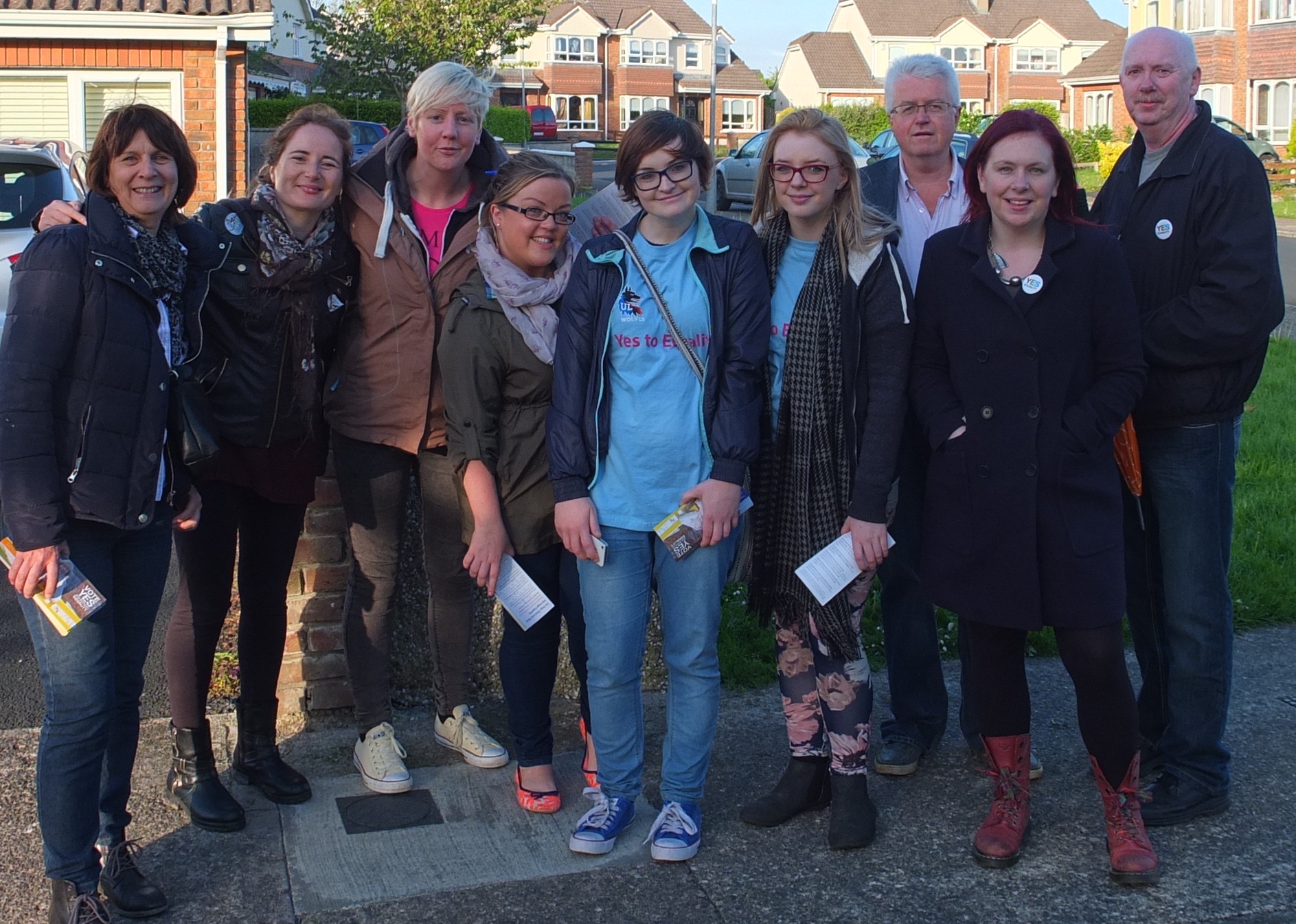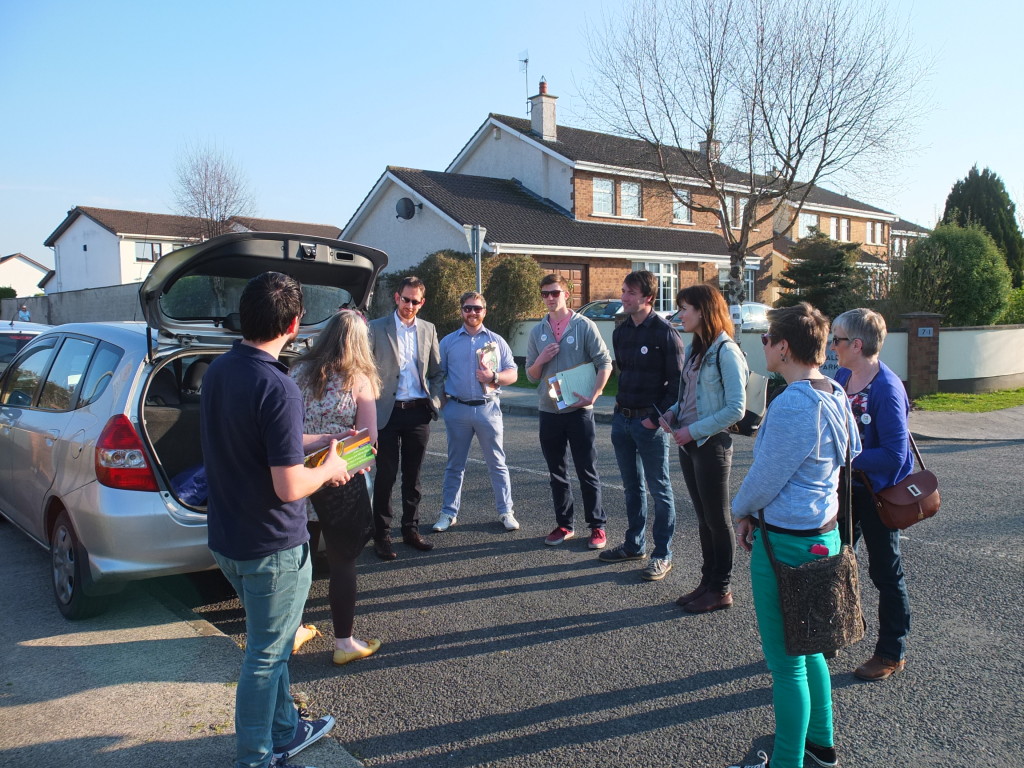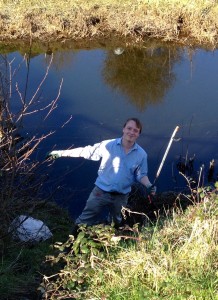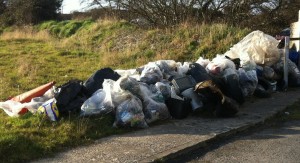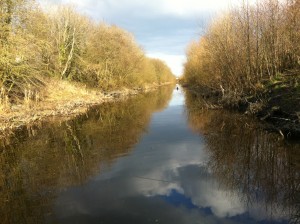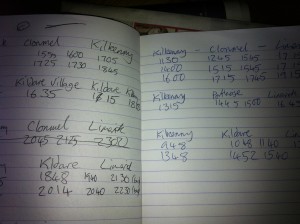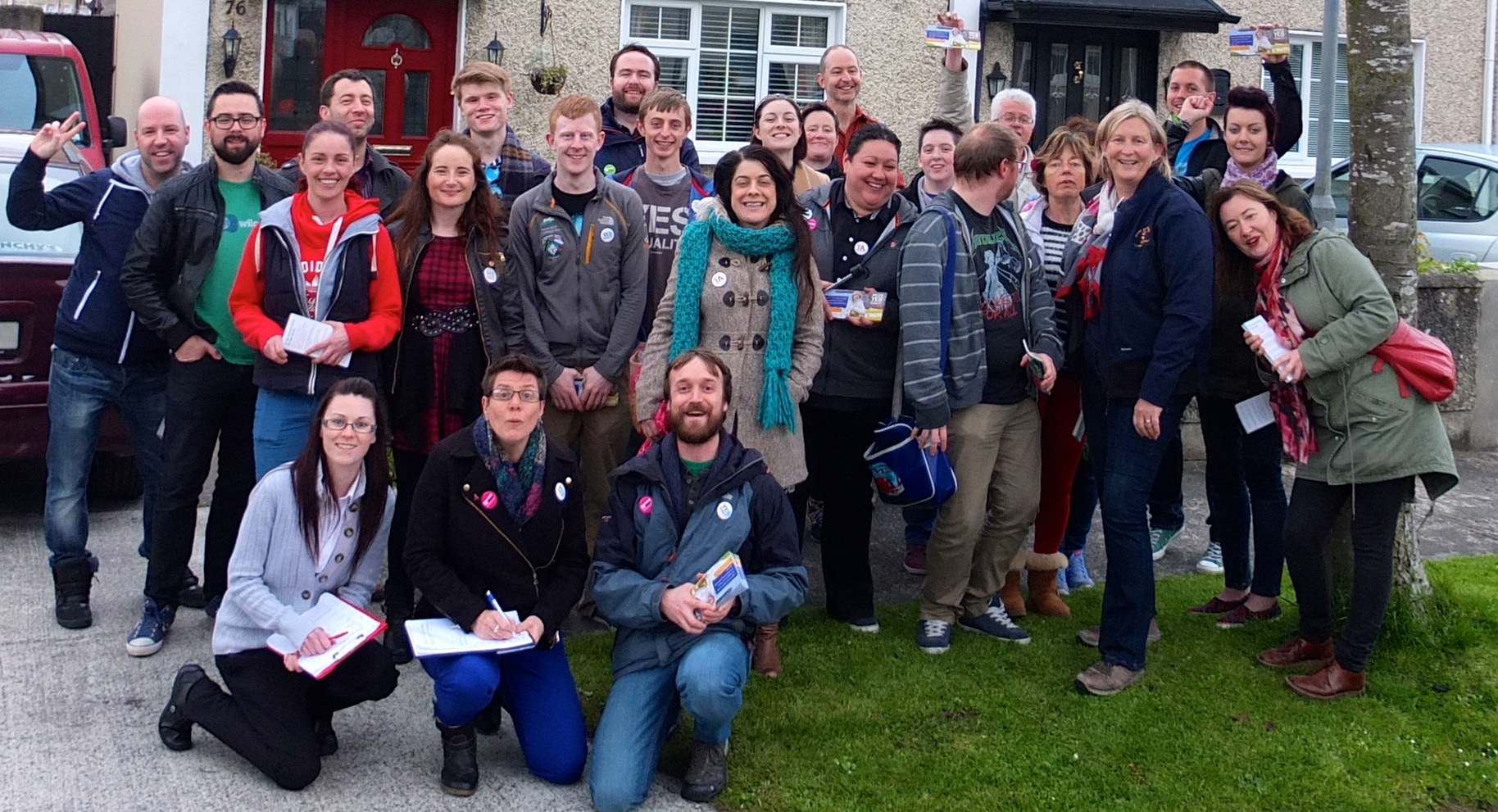
There are 6 days to go until Ireland votes whether to allow same-sex marriage.
The Limerick branch of the YesEquality campaign have been out knocking on doors every weeknight since 9th April. I’ve probably made it out for just over a third of those nights. I am by no means the most prolific, many more have been out more often than I have.
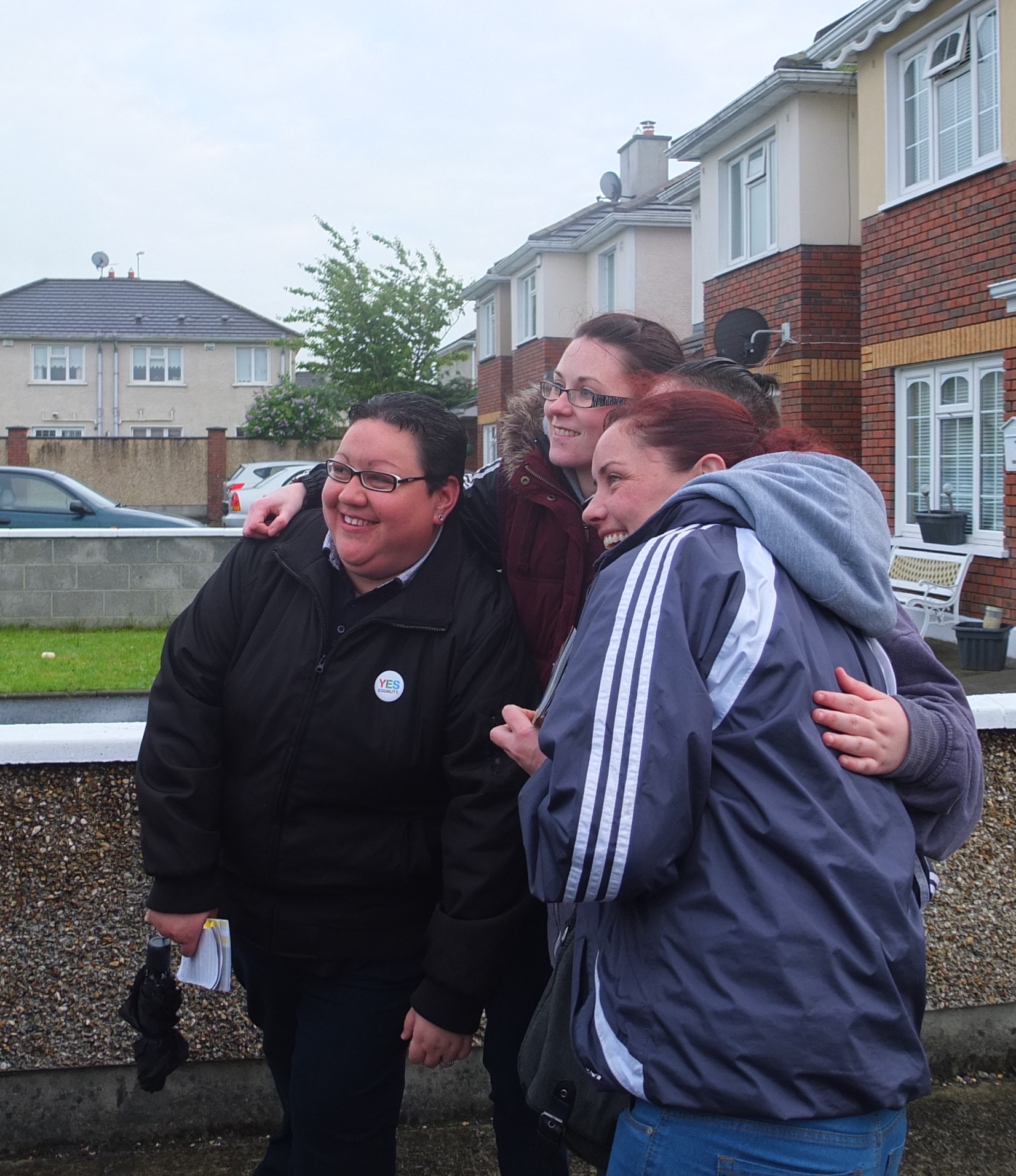 We usually meet at 6pm, after a brief set of introductions and a run through talking points, we head out and knock on doors. Anybody new is warmly welcomed and paired up with someone who has canvassed before. For 2 hours we knock on doors around an estate in Limerick City. About a half of people won’t be in or won’t feel like coming to the door. For the other half we get to have a conversation.
We usually meet at 6pm, after a brief set of introductions and a run through talking points, we head out and knock on doors. Anybody new is warmly welcomed and paired up with someone who has canvassed before. For 2 hours we knock on doors around an estate in Limerick City. About a half of people won’t be in or won’t feel like coming to the door. For the other half we get to have a conversation.
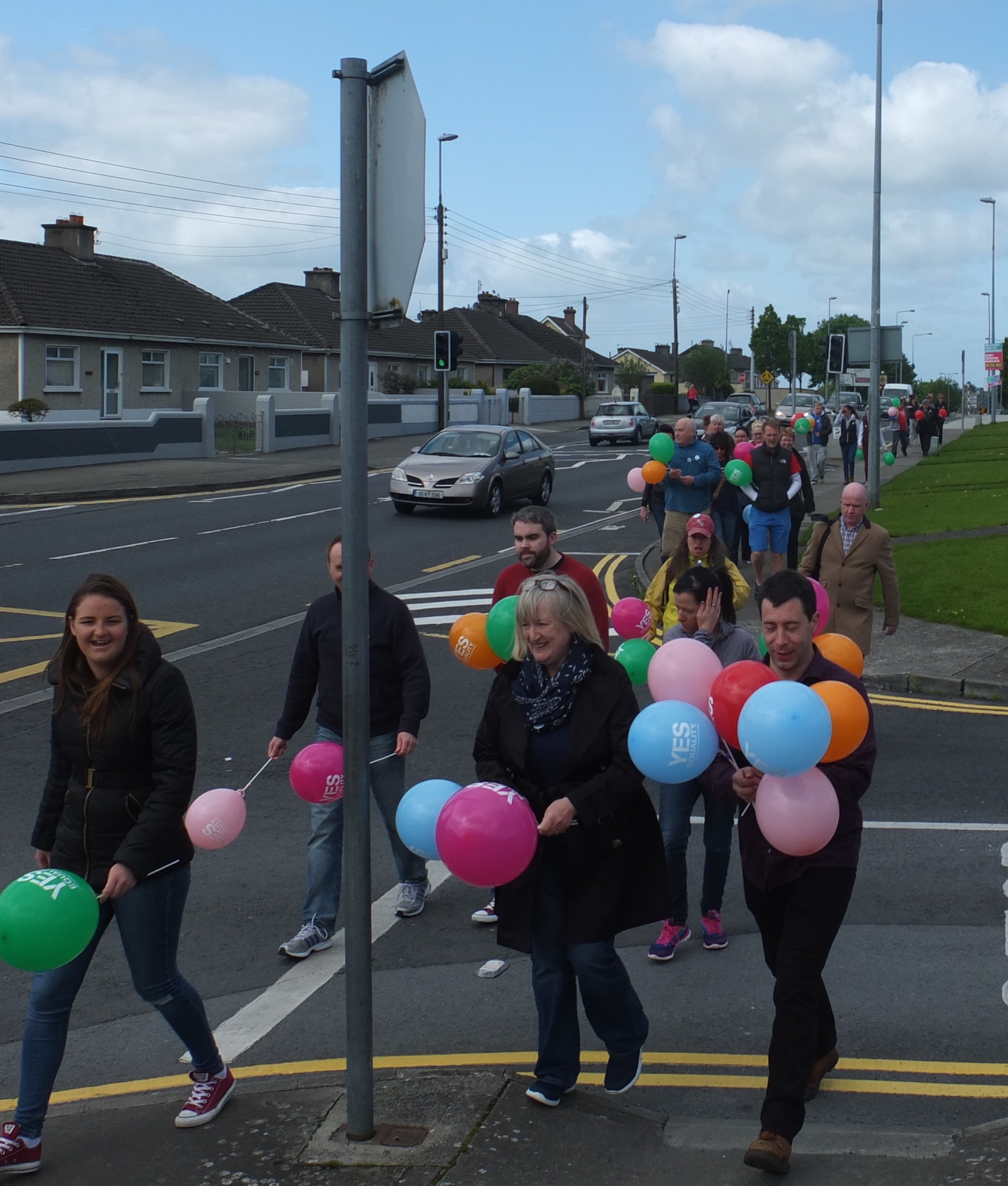 That conversation will go a number of different ways but overwhelmingly it is respectful. If someone comes to the door, invariably we apologise for bothering them. Whether a voter indicates that they are voting yes, or voting no, or are undecided, we ask them if they have any questions or concerns. And at the end of the conversation we thank them for their time.
That conversation will go a number of different ways but overwhelmingly it is respectful. If someone comes to the door, invariably we apologise for bothering them. Whether a voter indicates that they are voting yes, or voting no, or are undecided, we ask them if they have any questions or concerns. And at the end of the conversation we thank them for their time.
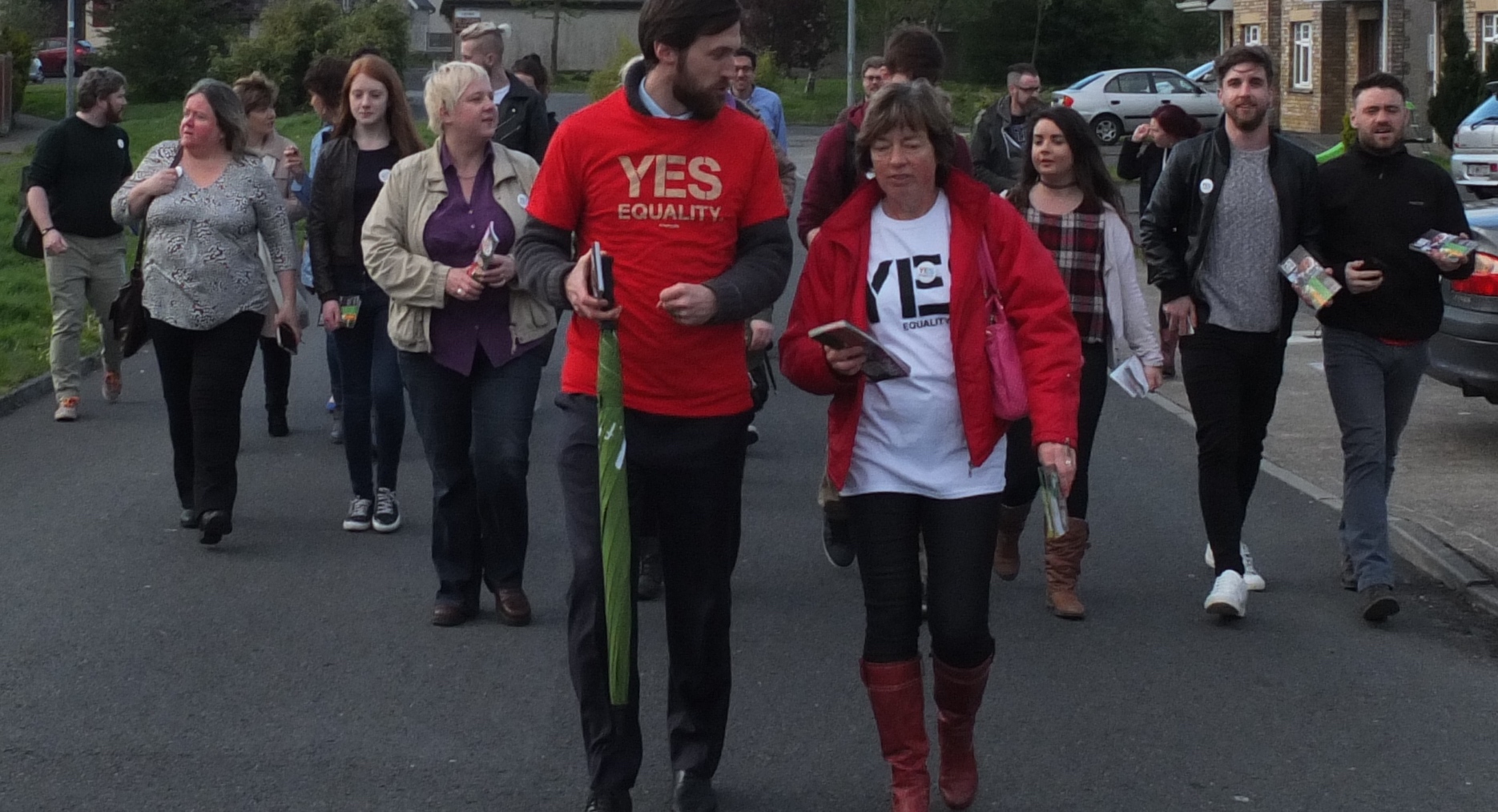 I have witnessed the incredible strength and dignity of my fellow canvassers as they knock, smile, and ask; night after night. Most people, whether they are voting yes or no, are absolutely lovely. A small proportion are not. But I’m proud to say that I’ve not heard of one canvasser losing their cool. Think of how you would feel to knock on a stranger’s door to ask them for something that you desperately needed, only for them to call you abnormal, or unnatural. Even though this doesn’t happen very often, the fact that it always gets answered with ‘well sorry to bother you and thanks for taking the time to talk to me’ fills me with awe at my fellow canvassers strength and dignity.
I have witnessed the incredible strength and dignity of my fellow canvassers as they knock, smile, and ask; night after night. Most people, whether they are voting yes or no, are absolutely lovely. A small proportion are not. But I’m proud to say that I’ve not heard of one canvasser losing their cool. Think of how you would feel to knock on a stranger’s door to ask them for something that you desperately needed, only for them to call you abnormal, or unnatural. Even though this doesn’t happen very often, the fact that it always gets answered with ‘well sorry to bother you and thanks for taking the time to talk to me’ fills me with awe at my fellow canvassers strength and dignity.
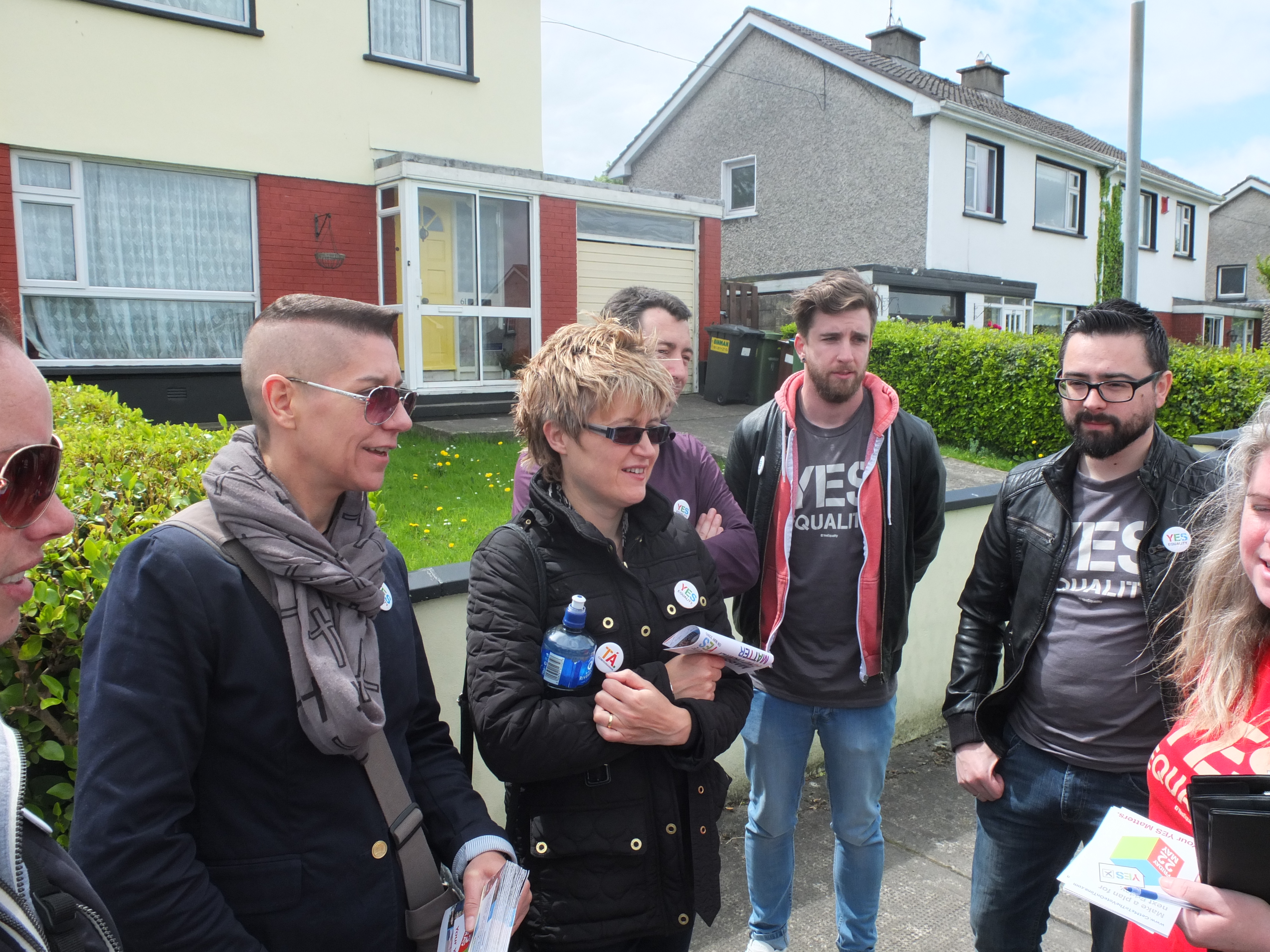 I’m a little shy, and even though I have canvassed before as a member of the Green Party, it’s not something that comes naturally to me. I think most of my fellow canvassers are the same: the organisation of this campaign has been remarkably free of ego, we’re not the type of people who are naturally inclined to shout from the rooftops, but we’re at your door because we want to ask, as respectfully as possible, for your vote.
I’m a little shy, and even though I have canvassed before as a member of the Green Party, it’s not something that comes naturally to me. I think most of my fellow canvassers are the same: the organisation of this campaign has been remarkably free of ego, we’re not the type of people who are naturally inclined to shout from the rooftops, but we’re at your door because we want to ask, as respectfully as possible, for your vote.
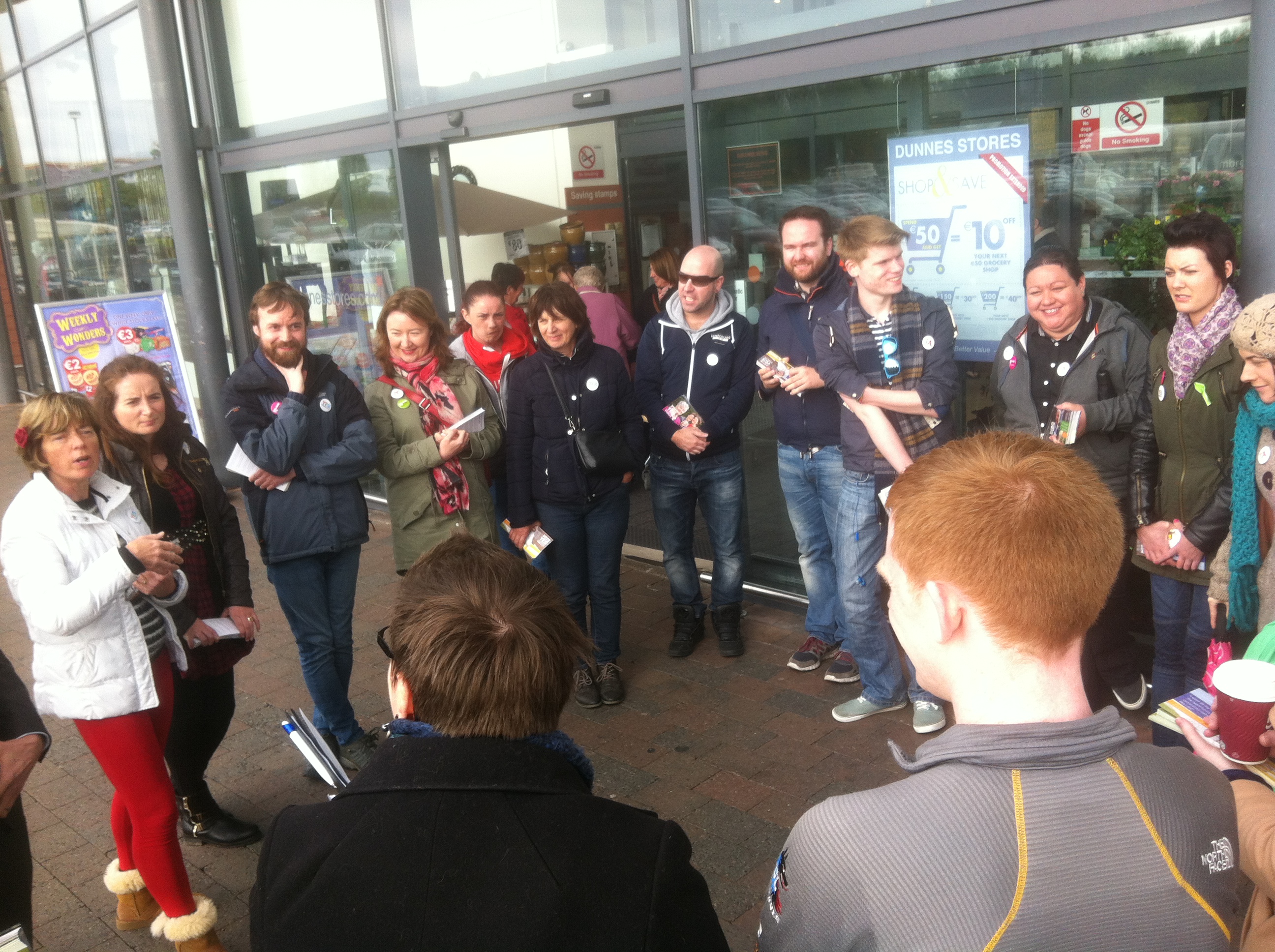 There are times in your life when you make a lot of friends: when you start school or college, your work, or maybe a sport or hobby that you like to do with others. I’m old enough to have finished my education, I run a very small company, and most of my hobbies are fairly solitary, so I never thought that I would have one of those moments where I would make a lot of friends.
There are times in your life when you make a lot of friends: when you start school or college, your work, or maybe a sport or hobby that you like to do with others. I’m old enough to have finished my education, I run a very small company, and most of my hobbies are fairly solitary, so I never thought that I would have one of those moments where I would make a lot of friends.
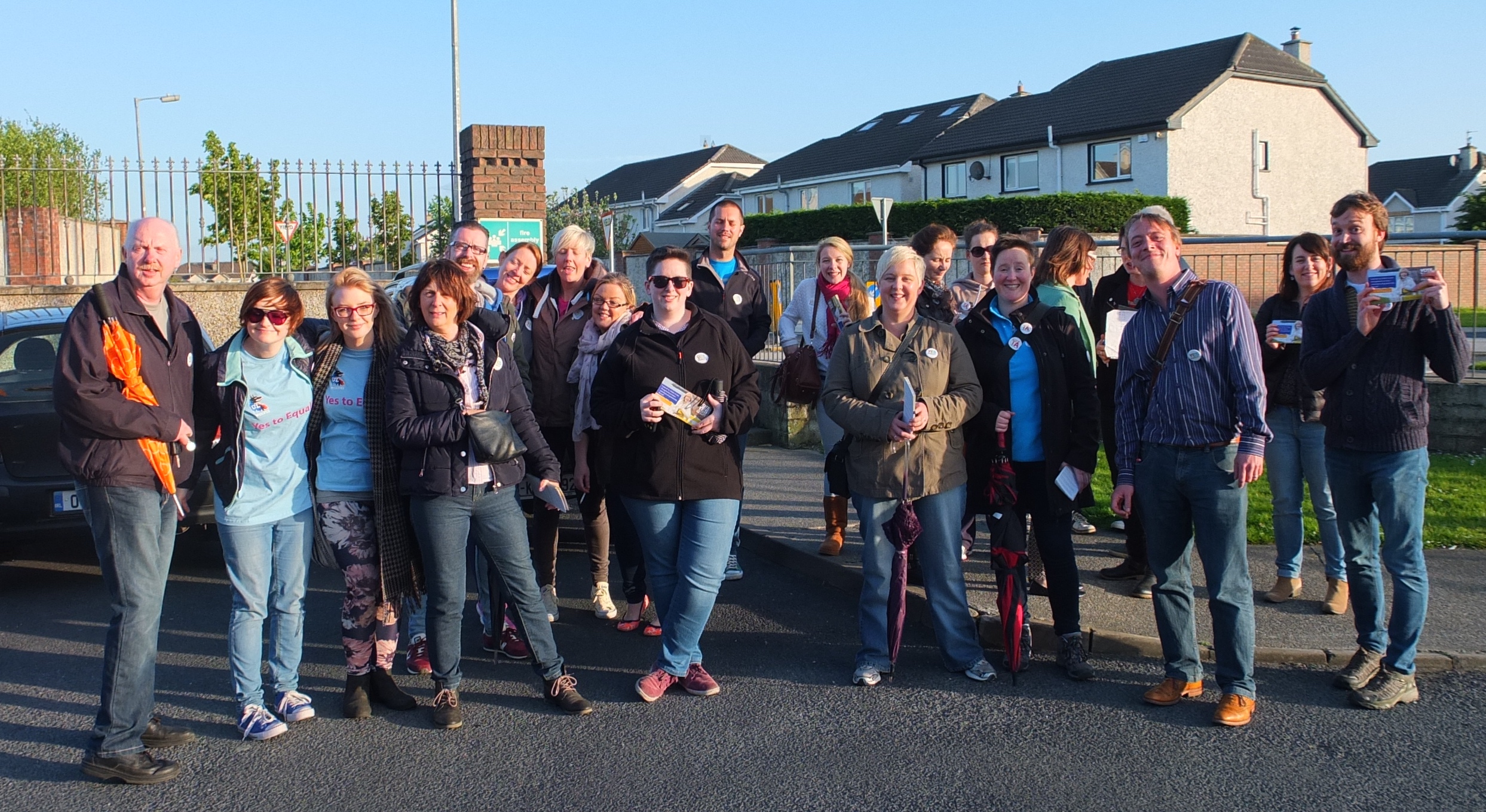
But I think and hope that I have. I have met so many absolutely wonderful people over the past 6 weeks. They have reminded me that marriage is not just about love for your spouse, but about the friends beside you who enrich and support that relationship.
As I write this I am tired and sunburnt, my house is a mess, my feet have blisters and I haven’t seen my wife properly in a month (I am not unique – the irony of a marriage referendum campaign putting extreme stress on so many marriages and hoped-for-marriages is not lost on any of us…). But I think of my new friends, and I am incredibly grateful for the opportunity to meet such a wonderful set of people.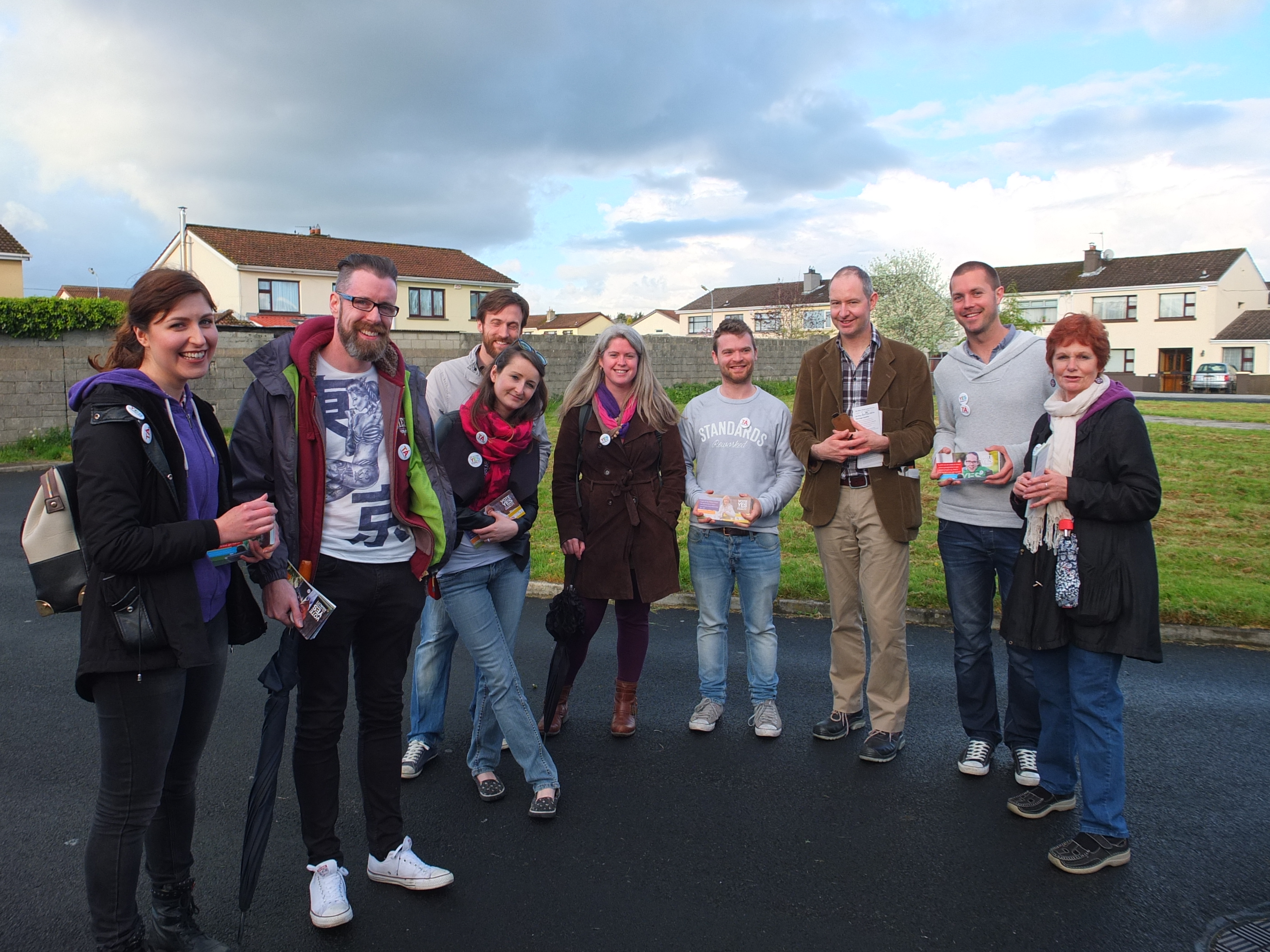
This referendum is going to be very close. Despite what the polls say, I’ve knocked on enough doors to realise that nothing can be taken for granted.
The enemy of equality is not prejudice. The enemy of equality is complacency.

